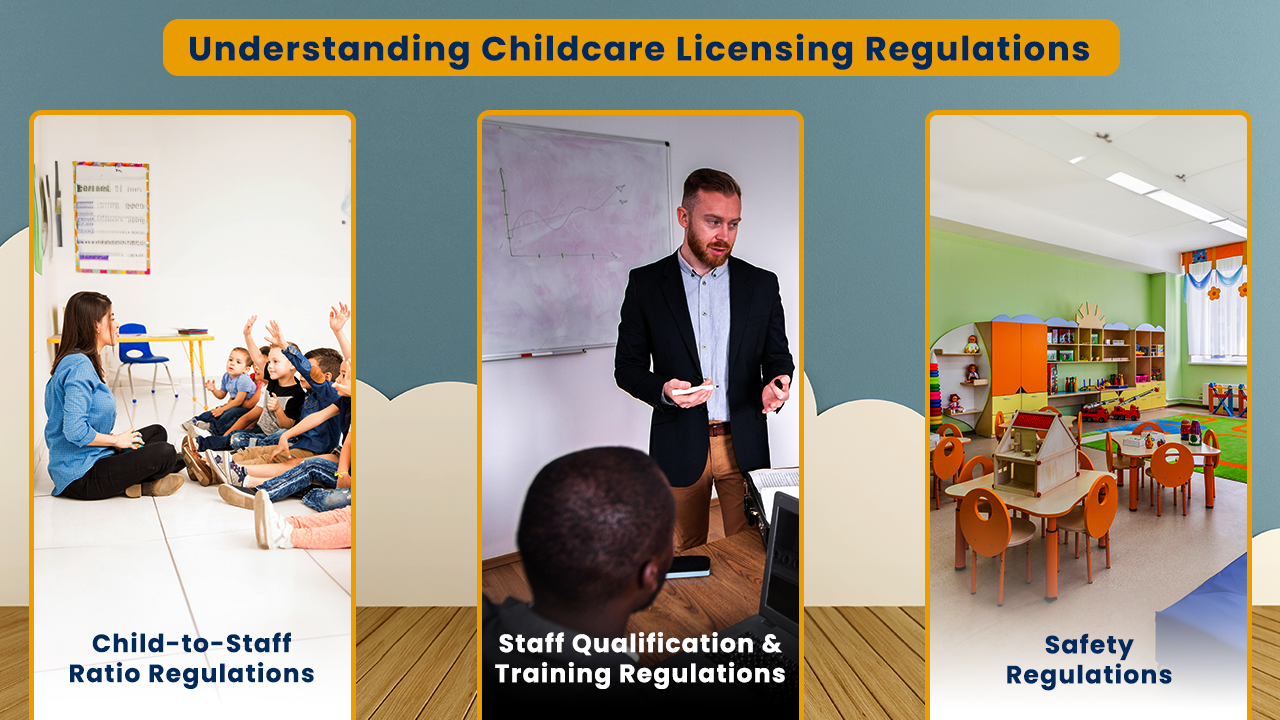
In today’s digital age, social media for Daycare businesses has become an essential tool for daycare marketing. With its vast reach and powerful influence, social media provides an excellent platform for daycare centers to connect with parents, showcase their unique offerings, and build a strong online presence. However, navigating the world of social media requires careful consideration and strategic planning to ensure that your daycare business maintains a positive reputation and effectively engages with your target audience. In this blog post, we will explore the dos and don’ts of social media specifically tailored to daycare businesses. By adhering to these guidelines, you can leverage social media’s potential to maximize your daycare’s visibility, foster trust with parents, and, ultimately, grow your business. Let’s dive in!
The Dos of Social Media for Daycare Businesses
A. Define your target audience
- Identifying parents’ demographics and preferences: Understanding your target audience is crucial for effective social media daycare marketing. Consider the age range, location, and interests of parents who are likely to enroll their children in your daycare. Conduct market research or surveys to gain insights into their preferences and expectations.
- Tailoring your content to resonate with your audience: Once you have identified your target audience, craft content that appeals to them. Share informative and relevant posts about child development, parenting tips, and educational activities. Use language and visuals that speak directly to parents, addressing their concerns and aspirations.
B. Create a compelling social media strategy
- Setting clear goals and objectives: Determine what you want to achieve through your social media presence. It could be increasing enrollment, enhancing brand awareness, or improving parent engagement. Set specific, measurable goals that align with your overall daycare business objectives.
- Choosing the right social media platforms: Different social media platforms cater to distinct demographics and content formats. Identify the platforms where your target audience is most active. Facebook, Instagram, and Pinterest are popular choices for daycare businesses due to their visual appeal and sharing capabilities.
- Planning your content calendar: Consistency is key in social media for daycare businesses marketing. Create a content calendar that outlines the types of content you will post and the frequency of your posts. Include a mix of engaging visuals, informative articles, testimonials, and updates about your daycare’s events and activities.
C. Showcase your daycare’s unique qualities
- Highlighting your experienced staff and their qualifications: Parents want assurance that their children are in capable hands. Feature your daycare’s teachers and staff members, emphasizing their qualifications, certifications, and years of experience. Share their stories and expertise to build trust and credibility.
- Showcasing engaging and educational activities: Capture learning, creativity, and fun moments at your daycare. Share photos and videos of children engaged in educational activities, such as arts and crafts, science experiments, or outdoor play. This showcases your daycare’s unique approach and provides a glimpse into the children’s positive experiences in your care.
- Sharing success stories and testimonials from parents: Testimonials from satisfied parents are a powerful marketing tool. Encourage parents to share their experiences and feedback, and feature these testimonials on your social media platforms. Highlight your daycare’s positive impact on children’s development and the peace of mind it provides to parents.
The Don’ts of Social Media for Daycare Businesses
A. Avoid oversharing personal information
- Respecting children’s privacy and confidentiality: When posting on social media, it’s essential to prioritize the privacy and safety of the children in your care. Avoid sharing any personal information, such as full names, addresses, or specific details that could potentially compromise their safety or violate their privacy rights. Stick to using children’s first names only or use generic terms like “little ones” or “our students” to maintain confidentiality.
- Limiting the use of children’s names and photos: While sharing moments from your daycare is important for showcasing your activities, be cautious about the frequency and extent of sharing children’s names and photos. Obtain explicit permission from parents before posting any pictures or videos of their children, and be mindful of the potential risks associated with sharing identifiable images of minors.
B. Steer clear of controversial topics and discussions
- Maintain a neutral and inclusive stance: Social media for daycare businesses can be a platform for various discussions and debates, but it’s important for daycare businesses to maintain a neutral stance on controversial topics. Avoid engaging in or sharing content related to politics, religion, or other divisive subjects that may alienate or offend your diverse parent community.
- Avoid sensitive topics that may polarize your audience: While staying engaged with your audience is important, be mindful of the topics you choose to address. Stay away from sensitive topics like parenting styles, vaccination debates, or hot-button issues that can create tension or disagreements among parents. Focus on providing informative and positive content that unifies rather than diverges.
C. Don’t neglect monitoring and moderating your social media accounts
- Regularly monitor comments and messages for inappropriate content: It’s crucial to actively monitor the comments and messages on your social media platforms to ensure a safe and respectful environment. Remove any comments or content that contain offensive language, spam, or any form of harassment. Establish clear community guidelines and make them visible to users to set expectations for appropriate behavior.
- Respond promptly to any concerns or complaints: Address any concerns or complaints raised by parents or other social media users promptly and professionally. Publicly acknowledge their feedback, apologize if necessary, and provide a resolution or direct them to the appropriate channels for further assistance. Timely and empathetic responses demonstrate your commitment to customer satisfaction.
D. Don’t ignore analytics and insights
- Utilize social media analytics tools to track performance: Social media platforms offer analytics and insights that provide valuable information about your audience engagement, reach, and content performance. Utilize these tools to track key metrics, identify trends, and gain insights into what type of content resonates best with your audience.
- Analyze data to refine your strategy and optimize engagement: Regularly analyze your social media analytics data to refine your social media strategy. Identify patterns in engagement, content preferences, and peak activity times. Use this data to optimize your content strategy, posting schedule, and overall social media approach. By leveraging the insights provided by analytics, you can make informed decisions that result in higher engagement and better reach.
Conclusion:
In conclusion, “Social Media for Daycare Businesses, The Dos and Don’ts” provides valuable insights on effectively utilizing social media platforms for daycare businesses. By leveraging the power of social media, daycare owners can enhance their online presence, engage with parents, and attract new clients.
Tailoring strategies to meet specific needs and staying informed about platform updates and trends are essential. Embracing social media opportunities can help build a strong online presence, foster trust with parents, and create a positive digital environment. Remember to strike a balance between showcasing strengths, nurturing connections, and prioritizing child well-being.


